Owolabi Bibitayo Ayobami is a lecturer at the Department of Wildlife and Ecotourism Management at Osun State University in Osogbo, Nigeria. He is also busy with his PhD, focusing on vulture conservation in the southwestern state of Nigeria, through the Federal University of Technology Akure. Owolabi is passionate about wildlife conservation, especially that of birds.
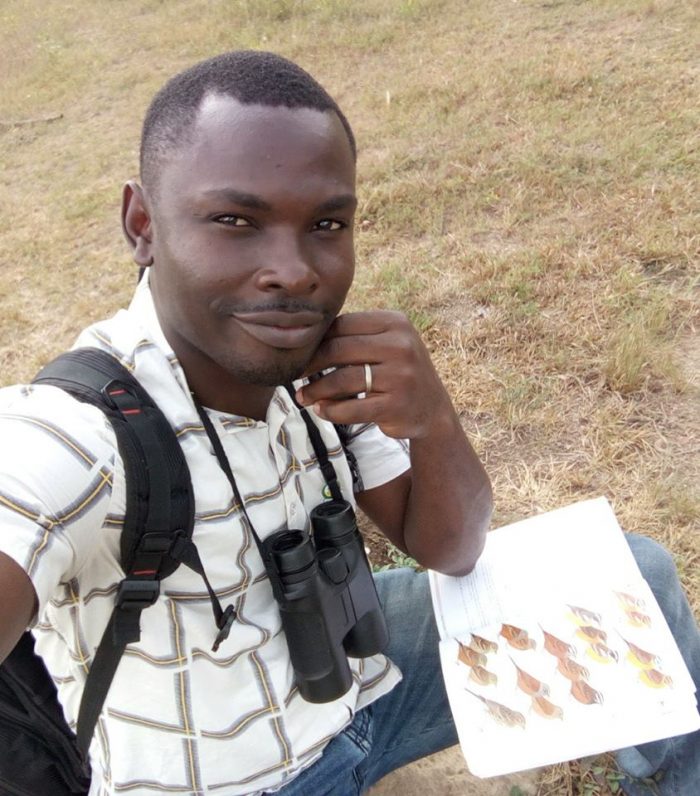
Owolabi writes, “I was born into a family with an agricultural background, both my parents have a passion for agriculture. My mom was my Agricultural Science teacher during my secondary school days. I was only introduced to ornithology in 2013, but since then I have been an advocate for bird conservation! I absolutely love birds. Without birds, our chances of survival as humans are slim, we all need to do our part to keep the environment healthy for birds, ourselves as well as all other creatures that we share the planet with. Birds are important environmental indicators, they help us to quantify how healthy and balanced our environment are.”
How did you become a citizen scientist? What was the catalyst that got you going?
Like I mentioned earlier, in 2013 I was privileged to attend a seminar during my master’s degree programme and I found myself fascinated by the presentation on birds. That day my heart was so captured for biodiversity conservation. I went to meet the presenter (Dr Okosodo) and told him I want to work on birds for my Masters project. He gave me my first pair of binoculars and introduced me to the amazing world of citizen science. I did not know much about biodiversity prior to that seminar, I was quite ignorant of the beautiful flora and fauna that nature has bestowed on us.
I then took it upon myself to sensitize people to nature, through write-ups, social media posts, photos and any other mediums I could find in order to spread the gospel of nature conservation.
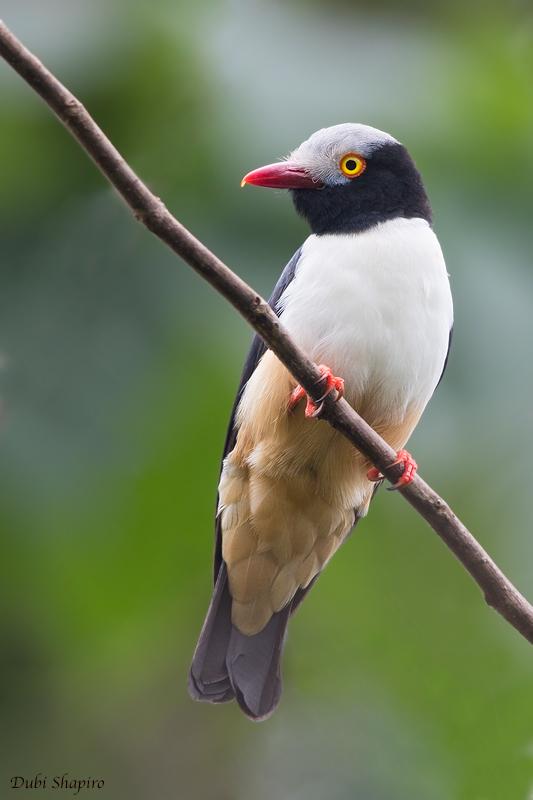
The catalysts that got me going happened in phases; first, the the feedback I received from people through emails and other means, of their eagerness to learn and know more about the environment and birds inspired me to go the extra mile as a citizen scientist. There is an indescribable joy when your efforts, to make life more meaningful and worthwhile, are noticed and appreciated. A friend once asked me, “I know butterflies to be colourful, but birds are either black or white. But the birds you have shown me are so diverse in colouration, do you paint them?” 🙂 I am glad that I can open people’s eyes to the wonderful world of birds. Another source of motivation for me, comes from senior colleagues in conservation who are at the forefront in helping to protect wildlife. They encourage me to keep up my own efforts.
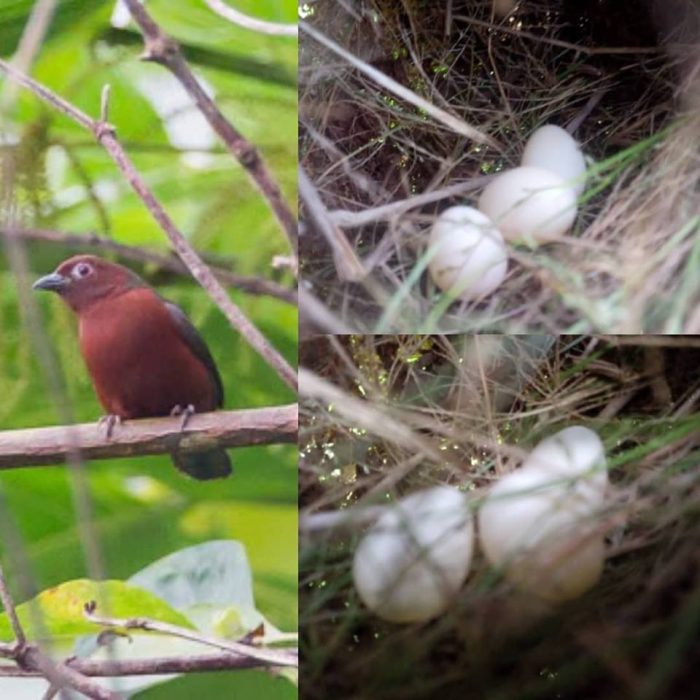
What has been the highlight for you?
There are too many highlights to mention!! Not a single day has gone by when I am out in the field with my camera and binoculars that I don’t discover something new and exciting. Each new discovery is wonderful to me. The more I discover, the more I want to know and the more I want to learn.
How has being a citizen scientist changed your view of the world?
Being a citizen scientist has helped me change my view of the world in various ways. I now feel that together we can make a difference to help the natural environment, if we choose to minimize the impact of various human activities. Collecting data and contributing to knowledge through the Nigerian Bird Atlas Project and the Virtual Museum really changed my views about the world in terms of species ranges, distributions and biodiversity conservation.
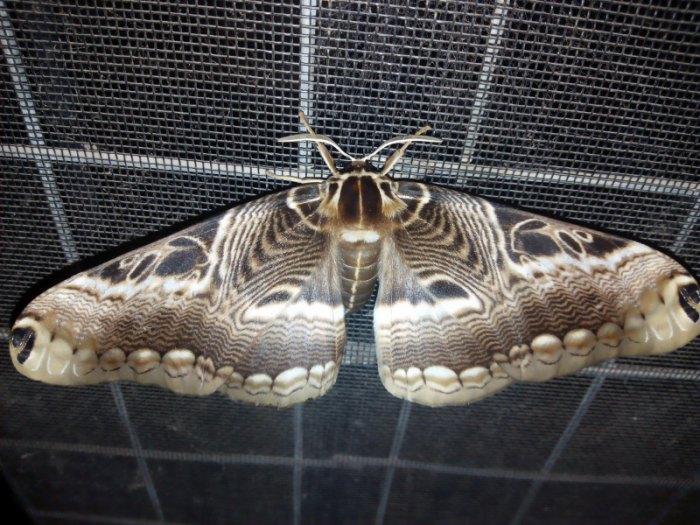
What does the term “citizen scientist” mean to you?
Citizen scientists are a a group of people, either professionals or non-professionals, taking part in crowd-sourcing, data analysis, and data collection. The idea is like that of division of labour, distributing work or to break down huge tasks into understandable and manageable components that anyone can perform. Participation of non-professionals in science is increasing, and citizen science has a central part in this. It is a contribution by the public to research, actively undertaking and requiring thoughtful action. It is absolutely fantastic!
What are you still hoping to achieve? This might be in terms of species, coverage, targets …
Thank you for this question. It reminds me that there is still so much that I want to do! There are two things I hope to achieve. I want to publish a book on the birds of southwestern Nigeria, and a book on bats of southwestern Nigeria. I know this might be a huge task, but I know it is achievable. Embedded in these goals are so many other awesome things like new species to discover, distribution range maps to update, and more grid cells to cover for the Nigerian Bird Atlas. I also want to upload all my discoveries to the Virtual Museum, which will help to contribute to a rich database on Nigerian biodiversity.
What resources have been the most helpful? (And how can they be made better?)
The Virtual Museum has been the most helpful tool for me. But I think it would help and to give the website a bit of a ‘face lift’ to make it more attractive and user-friendly. The equipment and bird books provided by APLORI for the Nigerian Bird Atlas Project has been a great help. More donations of binoculars and books by the public or private organizations would be fantastic! It helps us to get more people into bird atlasing.
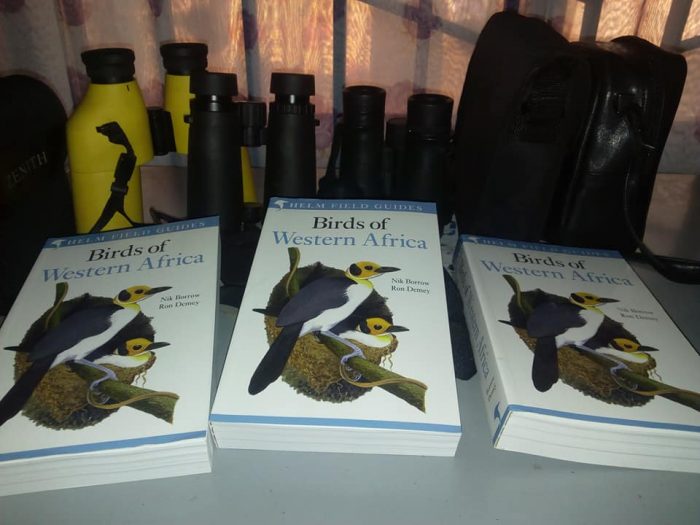
How do you react to the statement that “Being a citizen scientist is good for my health, both physical and mental!”?
The statement is 100% correct. I can’t imagine myself spending a whole day just sitting around discussing football, I will grow sick and tired of it. I love football of course, I am not against playing or watching it. Don’t get me wrong. You may even find it ironic that I am part of the staff football team at Osun State University. But what I am saying is that I have found a better way to keep the body and soul alive. Time spent in nature is always a healing experience. Walking about in nature is the best. It sets one’s mind at rest and gives one hope for the future. The splendour of nature’s majesty is indescribable and it works wonders! 🙂
What do you see as the role which citizen science plays in biodiversity conservation? What is the link?
Citizen science plays a key role in biodiversity conservation. It helps to spread the gospel of nature conservation and education. People around me now watch out for birds and other wildlife. They send me coordinates and photos of the critters they find. They all want to know what more they can do to help and contribute. Citizen science shows us that biodiversity conservation is a joint responsibility irrespective of your profession, gender, age, tribe, religion or political affiliations. Together we can achieve so much more! 🙂
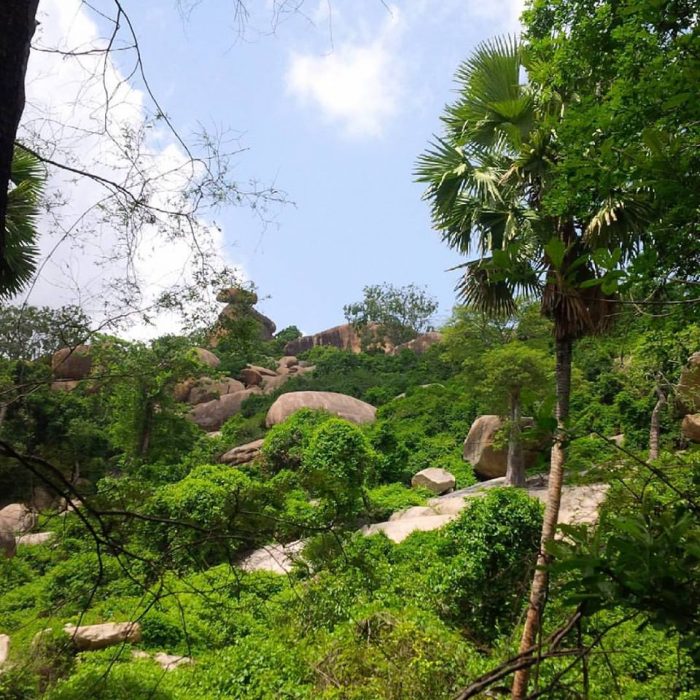
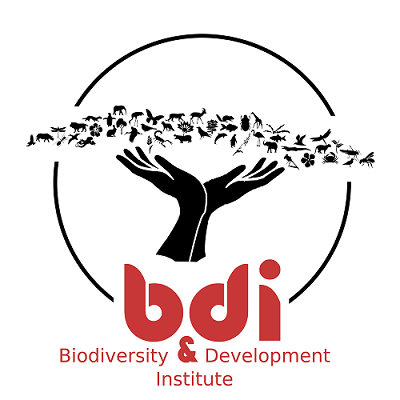
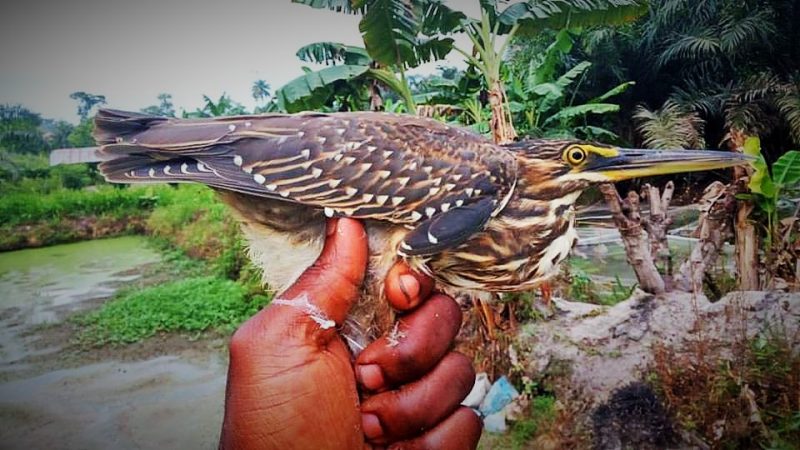
All of us at Biodiversity Ptreservation Center (BPC) Uyo, Nigeria http://www.biodiversitycenteruyo.org are happy to be associated with good work you are doing in the southwest. Please keep it up